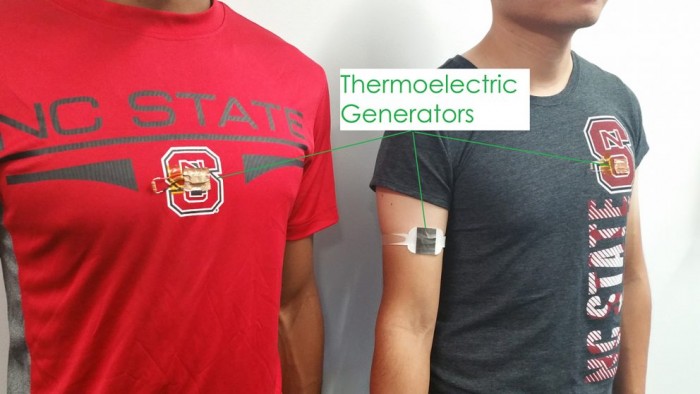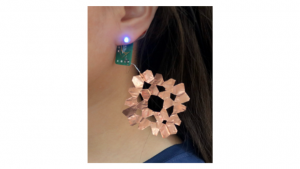
A student-led project at the North Carolina State University, US has harnessed human body heat to power wearable electronics. Our attachment to our devices has seen the rise of wearable technologies such as smartwatches, healthcare bands, fitness tech and even interfaces for our skin. But what keeps us on? The researchers have created lightweight, experimental prototypes that convert body heat into electricity for use in wearable electronics. Called Wearable thermoelectric generators (TEGs), the new device generates far more electricity than previous lightweight heat harvesting technologies.
“Previous approaches either made use of heat sinks – which are heavy, stiff and bulky – or were able to generate only one microwatt or less of power per centimetre squared (µW/cm2),” said Daryoosh Vashaee, an associate professor of electrical and computer engineering at NC State. “Our technology generates up to 20 µW/cm2 and doesn’t use a heat sink, making it lighter and much more comfortable.”
According to Vashaee, TEGs uses the temperature differential between the human body and the ambient air to generate electricity. In a press release on the university’s website, it’s explained that the device rests on the skin, using a layer of thermally conductive material to spread out the heat. A polymer layer prevents the heat from dissipating through to the outside air. The heat is then forced through a small, centrally-located TEG.
About 2 millimetres in its entirety, the device is tiny and flexible. “In this prototype, the TEG is only one centimetre squared, but we can easily make it larger, depending on a device’s power needs,” added Vashaee.
Vashaee explained that the aim for wearables like healthcare monitors is to ensure that they are functional and dependable for long-term use. “To do that, we want to make devices that don’t rely on batteries. And we think this design and prototype moves us much closer to making that a reality.”
The device can be worn on the upper arm or the inside of a t-shirt.






